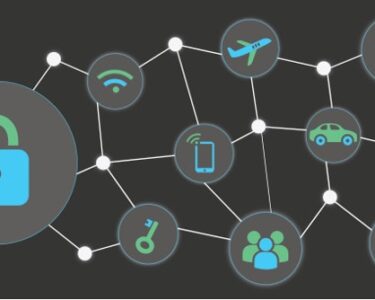
Digital Privacy Protection: A Guide to Protect Your Sensitive Information Online
In the digital age, our lives are increasingly intertwined with the internet. From social media to online banking, we share vast amounts of personal information online. While technology offers numerous benefits, it also poses significant threats to our digital privacy.
What is Digital Privacy?
Digital privacy refers to the right to control and protect information that is stored or transmitted online. It encompasses:
- The ability to control the collection, use, and disclosure of our personal data
- The protection of our communication channels, such as email and messaging
- The security of our devices and data from unauthorized access or attacks
Threats to Digital Privacy
Numerous actors can threaten our digital privacy:
- Government surveillance: Governments around the world collect and use personal data for various purposes, including law enforcement and national security.
- Corporate data collection: Businesses collect vast amounts of data about their customers, including browsing habits, purchase information, and social media activity.
- Cybercriminals: Hackers and other criminals target individuals and businesses to steal or misuse personal information for financial gain or malicious purposes.
Consequences of Digital Privacy Breaches
Breaches of digital privacy can have severe consequences, such as:
- Identity theft and financial fraud
- Reputation damage and social embarrassment
- Harassment and cyberbullying
- Discrimination and personal harm
Protecting Your Digital Privacy
It is crucial to take proactive steps to protect your digital privacy. Here are some best practices:
- Use Strong Passwords: Create complex passwords and use a password manager to store them securely.
- Enable Two-Factor Authentication: Add an extra layer of security to your online accounts by requiring a second verification method, such as a code sent to your phone.
- Review Privacy Settings: Carefully review the privacy settings on social media, email, and other online platforms to control who can access your information.
- Be Cautious of Data Sharing: Avoid sharing sensitive information, such as social security numbers or financial details, online unless necessary.
- Use Virtual Private Networks (VPNs): VPNs encrypt your internet connection, protecting your data from eavesdropping and tracking.
- Use Privacy-Focused Browsers: Consider using browsers like Tor or Brave that prioritize privacy and anonymity.
- Be Aware of Social Engineering: Phishing attacks and other social engineering techniques attempt to trick you into revealing personal information. Stay vigilant and never provide personal information without verifying the source.
Legal Protections and Advocacy
Several laws and regulations aim to protect digital privacy, such as the General Data Protection Regulation (GDPR) in the European Union and the California Consumer Privacy Act (CCPA) in the United States. Privacy advocacy groups also play a vital role in promoting digital rights and holding companies and governments accountable for breaches of privacy.
Conclusion
Digital privacy is essential for our safety, security, and peace of mind. By understanding the threats to our privacy and implementing effective protection measures, we can safeguard our sensitive information and mitigate the risks associated with the digital age. Remember, it is our responsibility to protect our digital privacy and ensure that our personal data remains secure.


